Create Mobile Moment Campaigns That Work
Published on April 13, 2016/Last edited on April 13, 2016/5 min read


Team Braze
The shift to mobile has changed the interactions between consumers and marketers forever. Marketing strategies aimed at simply reaching the right audience and persuading them to make a one-off purchase aren’t enough to secure continued revenue and engagement.
Last week, we explored the trend toward mobile moments in the webinar, “Winning the Mobile Customer Shift,” which featured Jennifer Wise of Forrester, senior analyst who works with B2C marketing professionals on mobile marketing and lifecycle management.
Today, we’re taking a look at the key points from Wise’s presentation. These actionable tips show how to create campaigns around mobile moments that will retain, engage, and convert mobile customers. Plus, we’ve got the entire webinar at the end of this post, or you can watch it on-demand here.
Let’s dive in.
Mobile moments are a huge opportunity
Customers today expect a lot from brands—and why shouldn’t they? When brands can reach them on smartphones—which many have with them all the time and use to organize their schedules, message their friends and contacts, and stay in touch with the world at large—a new level of interaction is possible.
Customers demand useful, personal, timely, relevant information… put simply, says Jennifer Wise, today’s mobile customers expect to “get what I want when I want it.”
As consumers ourselves, we can empathize. But as marketers, how do we deliver? Wise says that marketers must move away from one-time-transaction based campaigns toward continuous mobile conversations with their customers.
The key is to take advantage of the opportunities presented by mobile moments. Mobile users in the US pick up their phones 150-200 times a day, which makes for 30 billion mobile moments a day in the US alone.
These moments span the whole customer life cycle
Customers at every stage of the customer life cycle can be reached and engaged in mobile moments. The trick is knowing how to map those moments to campaigns for your brand.
For example, the diagram below shows how a customer in the discovery stage with a brand can be influenced in a marketing moment, and a customer who’s already had a positive experience with your company can be reached with a sale notification or recommendation tailored to their tastes, in a loyalty moment.
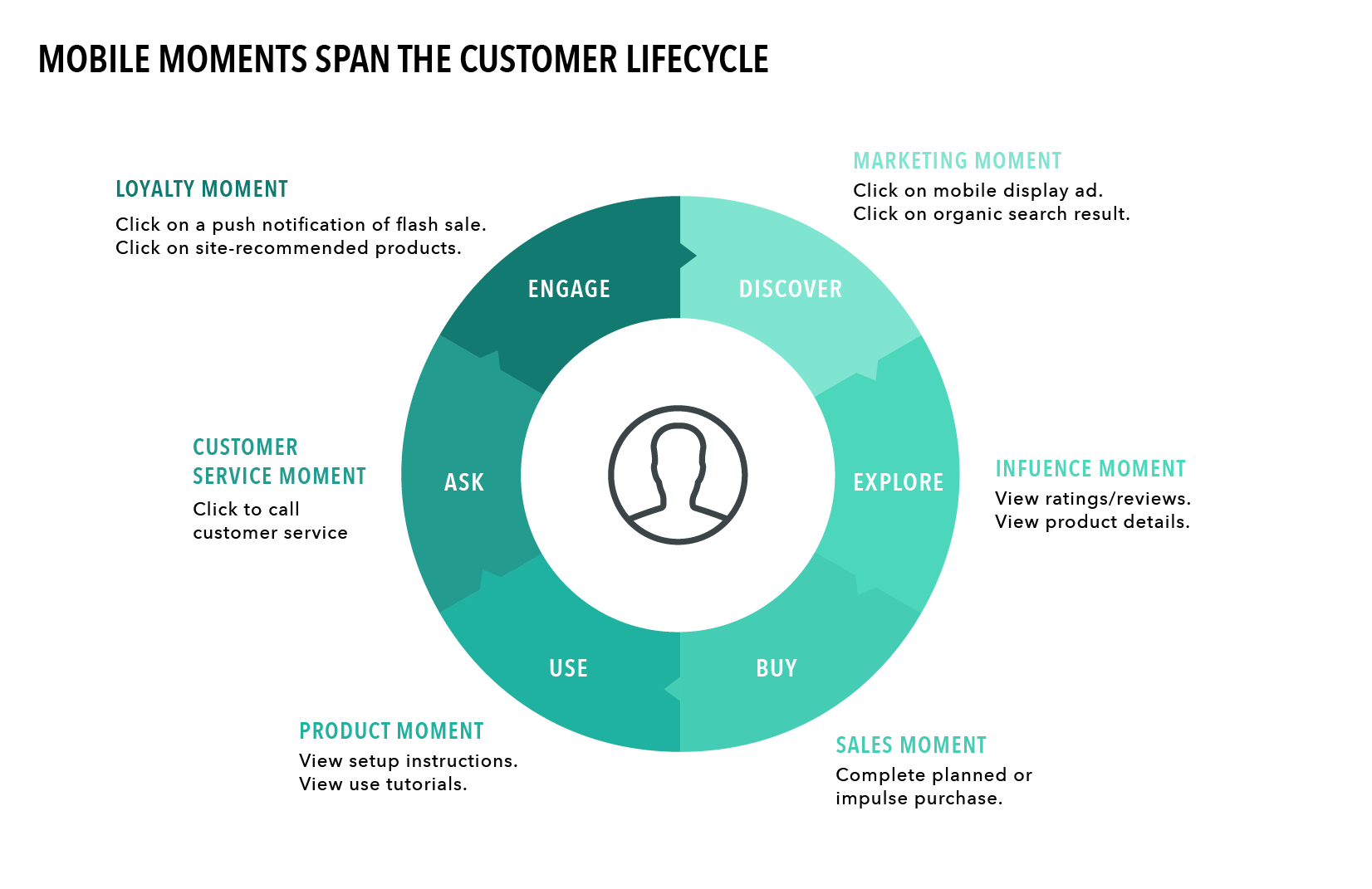
“Master Your Customer’s Mobile Pathways”, Forrester Research, Inc., November 3, 2015
The first step to getting here is internal communication and consistency. Currently, many companies operate with different teams sending campaigns through each channel (such as emails and push notifications), other teams fielding customer service calls, and still more teams building out loyalty programs. All these groups may or may not coordinate effectively with each other. But to the customer, of course, any message from or interaction with a brand is part of their experience with that brand, no matter the channel.
And the mobile world is only going to get more complex, thanks to the rise of smart devices, the expansion of mobile use to an increasingly global audience, and, says Wise, a trend toward shorter interactions with mobile devices.
The second step, then, is implementing a marketing platform that will help solve for these issues.
How to market in mobile moments
Using a marketing automation platform built for mobile, marketers can identify and build campaign strategies that will reach customers in ideal mobile moments. By implementing the “IDEA” framework—identify, design, engineer, and analyze campaigns—marketers can pinpoint and act on the best mobile marketing opportunities.
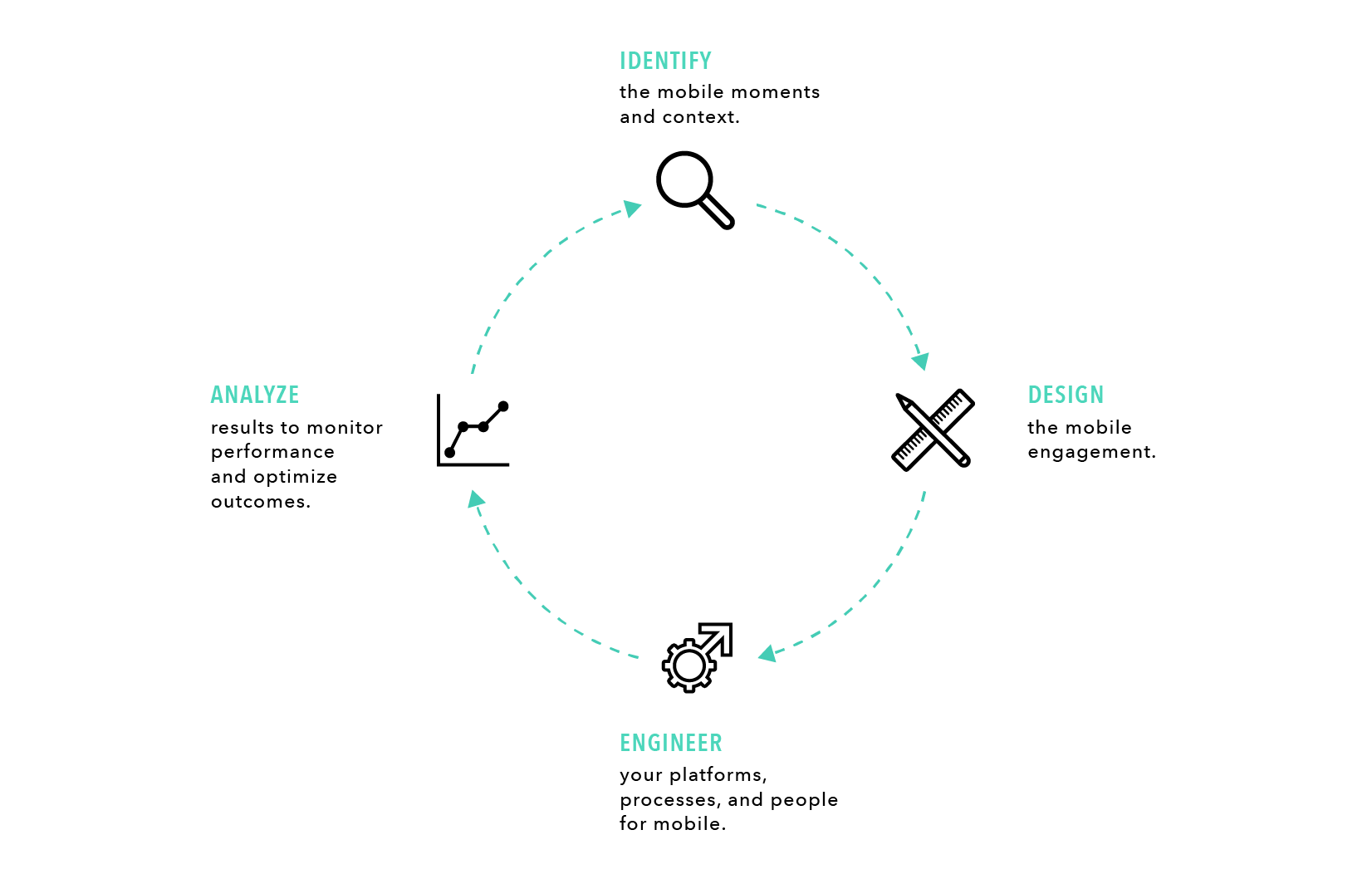
“Mobile Moments Transform Commerce and Service Experiences”, Forrester Research, Inc., March 29, 2016
Here’s how each of these stages work, drawing from the initial inputs into the marketing automation platform.
InputsIdentifyDesignEngineerAnalyzeData & ContentAudience & MomentsDecisions & AssemblyInteraction DeliveryMeasurement & OptimizationPlatform ingests data sources and content to deliver. Data types include, CRM, mobile app analytics, and real time data.Platform analyzes raw data to identify audience segments and events that trigger mobile moments.Platform assembles the intended content to deliver to the identified audience in the identified mobile moment.Platform delivers the campaign by the channel of choice in that mobile moment.Platform provides analytics on campaign performance.
What all this means is that your marketing platform helps you to identify relevant audiences at optimal moments by looking for predetermined triggers. When those events are triggered, the platform assembles and delivers the campaign to that audience, based on the parameters you’ve set.
How can you create these triggers? Identify the most important mobile moments for your company’s major goals:
- Map out the customer journey.
- Identify the possible pain points, or where customers are getting stuck in this journey and not progressing.
- Decide where the immediacy, simplicity, and context of mobile can remove friction or create delight.
- Build campaigns around those opportunities.
With these tips, today’s marketers will be ready to embrace a new engagement strategy to adapt, anticipate, and deliver in mobile moments. Check out the full presentation below, or watch the video.
Winning the Mobile Customer Shift
How innovative leaders are using micro moments to build long term relationships, featuring Jennifer Wise of Forrester
Winning the Mobile Customer Shift featuring Forrester from Appboy
Releated Content
View the Blog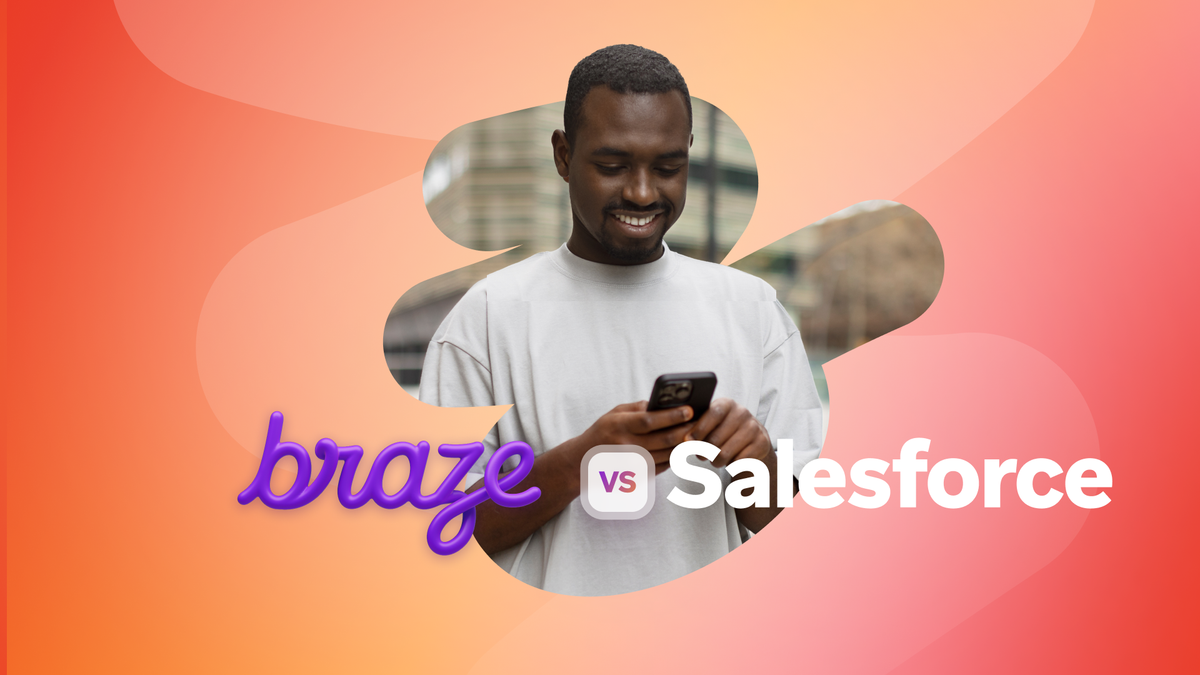
Braze vs Salesforce: Which customer engagement platform is right for your business?

Team Braze
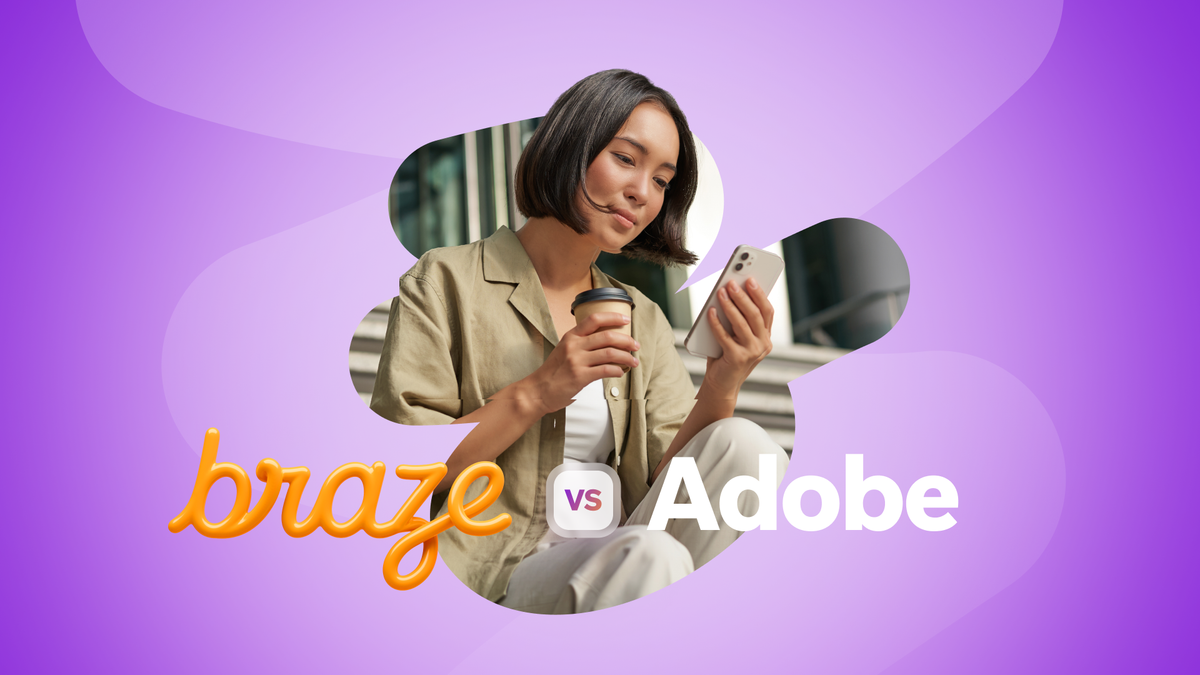
Braze vs Adobe: Which customer engagement platform is right for your brand?

Team Braze
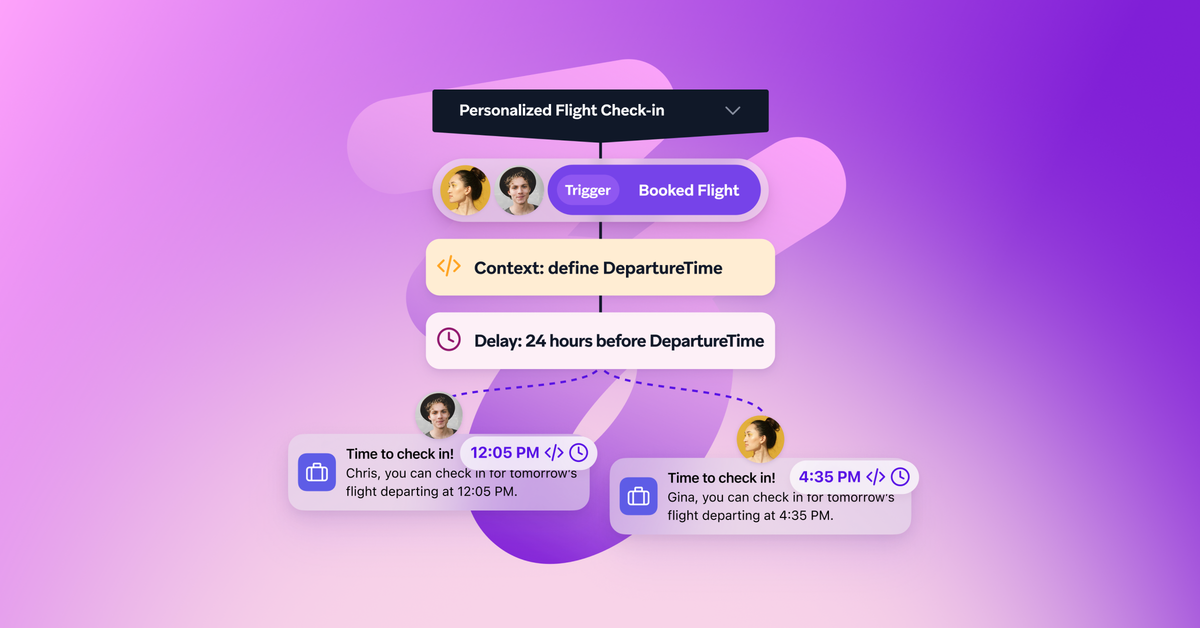
Every journey needs the right (Canvas) Context
